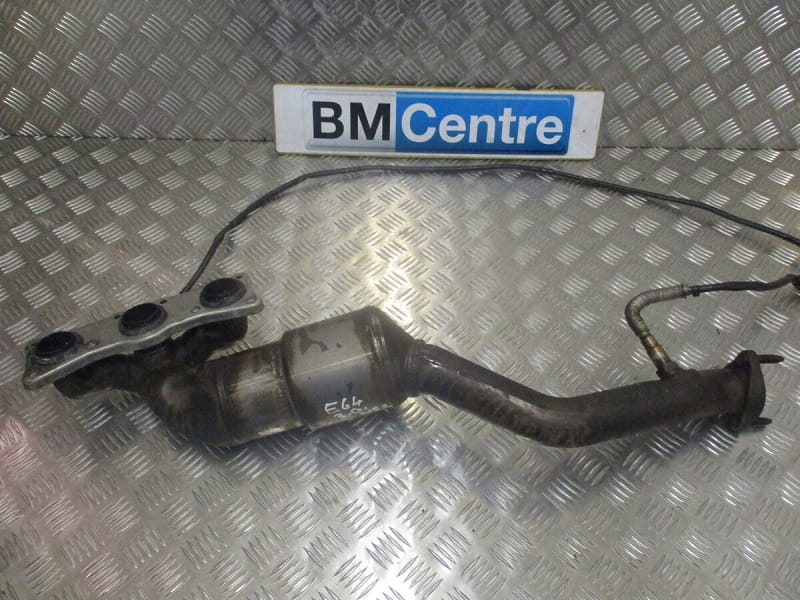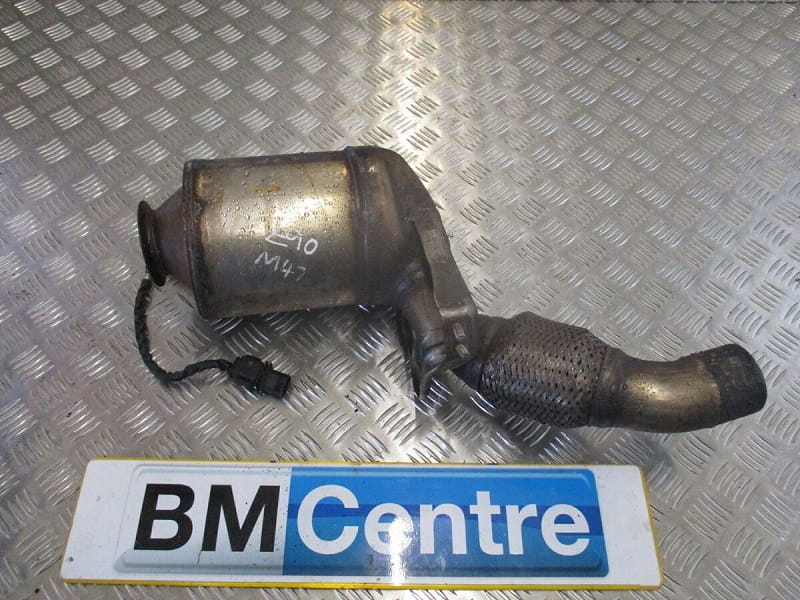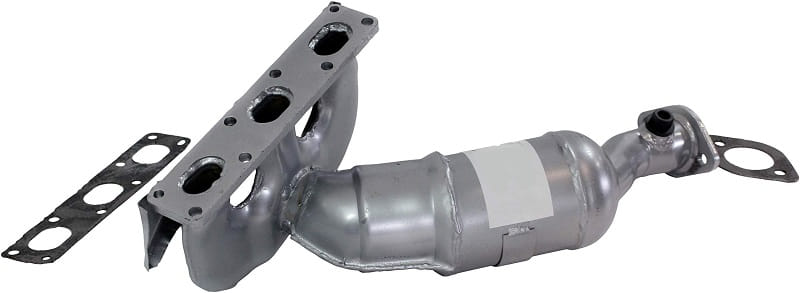This post contains affiliate links. This means I will make a commission at no extra cost to you should you click through and make a purchase [ “As an Amazon Associate, I earn from qualifying purchases.” ]. Read the full disclosure here.
BMW Catalytic Converter Price: What You Need to Know GuideMechanic.Com BMW is known for luxury, performance, and precision engineering. But along with that prestige comes a higher price tag—especially when it comes to repairs and replacement parts.
One of the most expensive components to replace is the catalytic converter. If you own a BMW and are wondering about the catalytic converter price, you’re not alone. Many BMW owners are shocked to learn how much this part can cost to repair or replace.
In this article, we’ll cover everything you need to know about BMW catalytic converter prices, including what they are, why they’re expensive, how to spot a failing unit, and how to save money on replacement.
See Also: Scrap Catalytic Converter Price
BMW Catalytic Converter Price: What You Need to Know
What Is a Catalytic Converter?

A catalytic converter is a key component of your BMW’s emissions system. It sits in the exhaust line and works to convert harmful gases—like carbon monoxide (CO), hydrocarbons (HC), and nitrogen oxides (NOx)—into less harmful substances like carbon dioxide (CO₂) and water vapor.
BMW catalytic converters are typically made with high-performance materials and precious metals such as:
- Platinum
- Palladium
- Rhodium
These metals act as catalysts for chemical reactions that neutralize toxic exhaust emissions.
Why Are BMW Catalytic Converters So Expensive?
There are several reasons BMW catalytic converters are more expensive than those in economy vehicles:
- High-End Materials
BMW uses premium-quality converters with higher concentrations of precious metals to meet stricter performance and emissions standards.
- Precision Engineering
BMW catalytic converters are engineered specifically for each model’s engine and exhaust configuration. OEM units are more advanced, with temperature sensors and oxygen sensors integrated.
- Multiple Converters
Many BMW models (especially V6 and V8 engines) use two or more catalytic converters, doubling or tripling the replacement cost.
- Labor Costs
BMW vehicles are complex machines, and labor rates for European car repairs tend to be higher. In some cases, reaching the converter requires removing parts of the transmission or engine, adding to the time and cost.
Average BMW Catalytic Converter Prices (2025)
The cost of a catalytic converter replacement in a BMW can vary depending on the model, year, and whether you choose an OEM or aftermarket option. Below are estimated price ranges:
BMW Model OEM Converter Price Aftermarket Converter Price
BMW 3 Series (E90, F30) $1,200 – $2,200 $600 – $1,200
BMW 5 Series (E60, G30) $1,500 – $2,800 $700 – $1,400
BMW X3 / X5 $1,800 – $3,000 $800 – $1,500
BMW 7 Series $2,000 – $3,500+ $900 – $1,800
BMW M Models (M3, M5, etc.) $2,500 – $5,000+ $1,200 – $2,500
👉 Labor costs range from $300 to $700, depending on the complexity of the replacement.
Note: These are 2025 estimates and can fluctuate based on local labor rates and parts availability.
OEM vs. Aftermarket BMW Catalytic Converters

When replacing your BMW’s catalytic converter, you’ll generally have two choices:
1. OEM (Original Equipment Manufacturer)
These are built to the exact specifications by BMW or their approved suppliers. They offer perfect fit, performance, and compliance with emissions laws—especially important in places like California or Europe.
✅ Pros:
- Guaranteed compatibility
- Longer lifespan
- Meets emissions standards
❌ Cons:
- Much more expensive
- Limited availability for older models
2. Aftermarket
These are third-party parts made to fit BMWs. Some may not match OEM quality, but many offer reliable performance at a lower cost.
✅ Pros:
- Cheaper
- Easier to find for older models
❌ Cons:
- May not meet emissions standards in all regions
- Fit and performance can vary
Signs Your BMW’s Catalytic Converter Needs Replacing
If your catalytic converter is failing, you may notice one or more of the following symptoms:
- Check Engine Light
One of the most common warning signs. The ECU will detect low converter efficiency.
- Loss of Power
A clogged converter can restrict exhaust flow, leading to poor acceleration.
- Increased Fuel Consumption
A malfunctioning converter can disrupt the air-fuel ratio.
- Sulfur or Rotten Egg Smell
A strong smell from the exhaust is often a sign of converter failure.
- Rattling Noise
Internal components may break apart and create a rattling sound when the car idles.
If you notice any of these, it’s best to get your BMW diagnosed by a certified mechanic.
Catalytic Converter Theft and BMWs
Due to the high precious metal content in BMW catalytic converters, they are often targeted by thieves. Popular SUVs like the X5 and sedans like the 3 Series are common targets. Stolen converters can fetch hundreds or even thousands of dollars in the black market or scrap yards.
How to Prevent Theft:
- Install a catalytic converter shield or cage
- Engrave your VIN number onto the converter
- Use motion-activated alarms or parking sensors
- Park in secure, well-lit areas
- Install dash cams or underbody sensors
Can You Drive Without a Catalytic Converter?
Technically, your BMW can operate without a catalytic converter, but it is illegal in most regions, including the U.S., UK, EU, and Australia. Driving without one:
- Fails emissions tests
- Produces more pollutants
- Causes engine errors or misfires
- May result in fines or failed inspections
Also, modern BMWs are equipped with sensors that monitor the converter’s performance. Removing it may trigger error codes and cause the engine to run poorly.
How to Save Money on BMW Catalytic Converter Replacement
Here are some ways to cut costs:

- Shop Around
Get quotes from multiple mechanics and compare OEM vs. aftermarket options.
- Buy Parts Separately
You might find lower prices for converters online (ensure compatibility and legality).
- Look for Recycled or Refurbished Units
Auto wreckers and BMW recyclers may offer genuine used converters in good condition.
- Check for Recalls or Warranty Coverage
In some cases, catalytic converters are covered under an extended emissions warranty (usually up to 8 years / 80,000 miles).
- Preventative Maintenance
Regular oil changes and fuel system maintenance reduce the chance of converter failure.
Final Thoughts
Replacing a BMW catalytic converter isn’t cheap—but understanding why it’s so expensive can help you make informed decisions.
Between the use of rare metals, complex engineering, and strict emissions standards, it’s easy to see why prices can run into the thousands.
However, with the right knowledge and a bit of smart shopping, you can minimize the cost while keeping your BMW running clean and legal.
Whether you’re driving a sporty 3 Series or a luxurious 7 Series, keeping your catalytic converter in top shape ensures better performance, lower emissions, and fewer headaches down the road.
- BMW Catalytic Converter Price: What You Need to Know - April 24, 2025
- Scrap Catalytic Converter Price - April 24, 2025
- Honda CR-V Catalytic Converter Price - April 24, 2025
